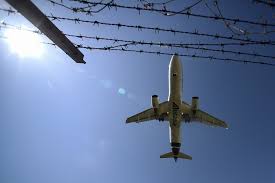llustrating the devastating demise of tourism in 2020, international tourist arrivals to Europe dropped 70% in 2020 compared to 2019
- All reporting European destinations record declines in arrivals between 51%-85%, 1 in 3 declining between 70%-79%
- Vaccine roll-out and improved testing and tracing regimes provide some grounds for optimism for gradual recovery in 2021
- 92% of business travelers expect their company to experience negative outcomes due to travel restrictions
As the COVID-19 pandemic enters its second year, its widespread impact continues to weigh heavily on European destinations and the wider tourism economy. The most recent edition of the ‘European Tourism Trends & Prospects’ quarterly report from the European Travel Commission (ETC) continues to monitor the COVID-19 impact on the sector and examines how travel activity is set to return in 2021 amid the current wave of infections and the slow start of vaccination programs.
Illustrating the devastating demise of tourism in 2020, international tourist arrivals to Europe dropped 70% in 2020 compared to 2019. Despite distribution challenges which have plagued the EU in recent weeks, the roll-out of vaccines across Europe and improved testing and tracing regimes provide some hope for the relaxation of travel restrictions in 2021. Nevertheless, the return to typical international travel demand patterns will be gradual with 2019 levels predicted to return by 2023.
ETC Executive Director Eduardo Santander, speaking following the publication of the report said: “We believe that the slow restart of travel can be expected in the spring across Europe with a gradual return to “new normality” through summer and autumn 2021. A return to travel will, however, happen with new consumer habits, calling for strong adaptation and agile responses from the tourism sector. Ensuring safe travel opportunities should become a priority for destinations as potential travelers are likely to travel more slowly, closer to home and to lesser-known destinations”.
Annus horribilis for European tourism
The hospitality industry has been one of the hardest-hit sectors, with a plunge in demand causing many hotels to remain closed throughout most of 2020, recording a 54% decline in occupancy levels. A quicker easing of restrictions for domestic travel and a stronger demand from residents to travel locally provided some support to those hotels that remained open; however, a second wave of the coronavirus outbreak placed a halt to the travel rebound.
As for the airline industry, hopes of a mild recovery into 2021 were dashed with the re-introduction of Europe-wide lockdowns as a result of the upsurge in cases over winter 2020. IATA’s latest international forecast predicts that Europe will be the most affected region in 2021 in terms of airline losses, with a decline in $11.9 billion projected. Year-to-date data shows drops to a record low in European Air Passenger Traffic (-69.3%).
Business travel in a post-pandemic Europe
The pandemic has provided an opportunity to re-evaluate working practices and the management of business relationships, and business travel in particular. This has resulted in calls on businesses to be more conscious of the environmental impact of their travel, prompting questions as to whether business travel will ever return to pre-pandemic levels.
The report indicates that predictions regarding the collapse of business-related travel are unlikely to materialize, as in-person meetings will remain a key tenet of business relationships. Research commissioned by SAP Concur in mid-2020 highlighted the importance of face-to-face contact, with 92% of business travelers expecting their company to experience negative outcomes due to COVID-19 travel restrictions, including a reduced number of deals or contracts signed and declines in new business wins. The return of international business travel to pre-coronavirus levels is expected by 2024, with domestic business travel recovering faster by 2023.




